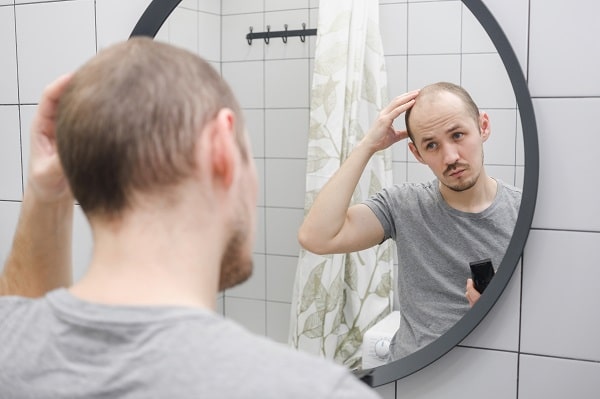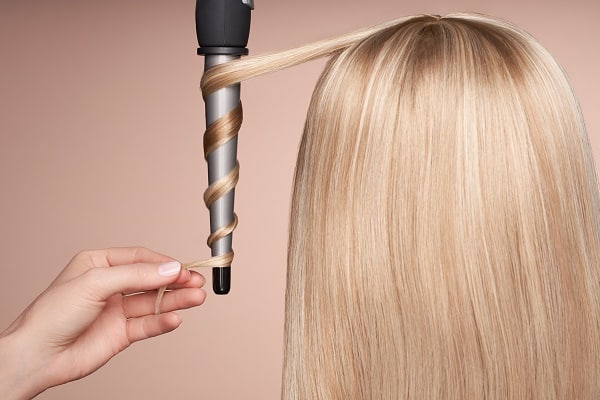Hair loss is a common condition that affects millions of people worldwide. It can result from various factors, ranging from genetics to environmental factors and lifestyle choices. While some hair loss is normal, excessive hair loss can cause concern and be distressing for those affected. This article will explore some of the common causes of hair loss, what makes them unique, and what can be done to treat or prevent them.
Contents
The Challenges Of Losing Your Hair

Everyone knows that losing your hair can be challenging and can bring with it an array of psychological issues. It’s a common condition that affects people of all ages, but men and women often experience it differently. Women may feel a lot of embarrassment and loss of self-esteem associated with thinning hair, while men may feel more anxious or depressed when they start to see large amounts of their hair gone.
With so much uncertainty in diagnosing the problem, feeling powerless to stop your hair loss is commonplace, increasing worries about what this could mean for someone’s future image. No matter the cause, understanding you’re not alone in facing this battle is an essential factor in coping with this difficult situation.
Common Causes Of Hair Loss
Getting to the route of your hair loss is an essential first step. While it may be a variety of the following, some of the most common causes include:
Genetics

One of the most common causes of hair loss is genetics. Androgenetic alopecia, also known as male or female pattern baldness, is the most common type of hair loss in both men and women. It is caused by a combination of hormones and genetics. The hair follicles gradually become smaller and produce finer, shorter, and fewer hairs.
In men, this usually results in a receding hairline and balding on the top of the head, while in women, it causes thinning. And while this condition cannot be cured, treatments such as minoxidil and finasteride can help slow down hair loss.
Hormonal Changes

Hormonal changes can also cause hair loss. This is particularly common in women and can result from pregnancy, menopause, or thyroid problems. During pregnancy, a woman’s hormone levels change, which can cause hair to remain in the resting phase for longer. This can result in excessive hair shedding after pregnancy.
Menopause can also cause hair loss due to a decrease in estrogen levels. Thyroid problems can also cause hair loss, as an under-active or over-active thyroid gland can disrupt the hair growth cycle.
Medical Conditions

Medical conditions such as alopecia areata and scalp infections may also play a role in hair loss. Alopecia areata is an autoimmune disease that causes patches of hair loss on the scalp, face, and other parts of the body. The exact cause of alopecia areata is unknown, but it is believed to be a result of a combination of genetic and environmental factors. In some cases, alopecia areata can be treated with medications, such as corticosteroids or immunotherapy, or with hair restoration procedures, such as hair transplants.
Scalp infections, such as ringworm, can also cause hair loss, as well as other symptoms, such as itching and redness. Ringworm is caused by a fungus that infects the scalp and hair follicles, causing them to become inflamed and weakened. Treatment for ringworm typically involves the use of antifungal medications and shampoos.
Medications

In some cases, medications can cause hair loss as a side effect. This can occur with both prescription and over-the-counter medications and can range from mild to severe hair loss. Some of the most common medications that can cause hair loss include those used to treat cancer, arthritis, depression, heart problems, and high blood pressure. In some cases, the hair loss can be temporary and will grow back once the medication is discontinued. However, in other cases, hair loss can be permanent.
It is important to understand that hair loss caused by medications is not the same as normal hair loss that occurs as part of the hair growth cycle. Medication-induced hair loss typically occurs due to the drug altering the hair growth cycle or causing damage to the hair follicles. The type and severity of hair loss can vary depending on the individual, the type of medication being taken, and the duration of use.
Stress and Trauma

When stress and trauma are the cause of hair loss, it is known as telogen effluvium. This type of hair loss occurs when a large number of hair follicles enter the resting phase at the same time. This can be caused by physical or emotional stress, such as a car accident or the death of a loved one.
The hair loss is usually temporary and will grow back once the stress has passed. However, if the stress continues and the hair loss persists, it is crucial to speak with a doctor, as this may indicate an underlying medical condition.
Poor Nutrition

A diet that is lacking in essential vitamins and minerals, such as iron and vitamin D, can disrupt the hair growth cycle and cause hair loss. In addition, crash dieting, fasting, and eating disorders can also lead to hair loss. A balanced diet that is rich in vitamins and minerals, such as leafy greens, lean proteins, and nuts, can help to promote healthy hair growth.
Supplements can also be used to address any nutritional deficiencies that may be causing hair loss. Just keep in mind that it is important to speak with a doctor before taking any supplements, as some may interact with medications or have other side effects.
Styling and Treatment

While it may not lead to permanent hair loss, certain hairstyles and treatments can cause damage to the hair follicles, leading to temporary hair shedding. This can include excessive heat styling, chemical treatments such as perms and relaxers, and tight hairstyles such as braids and ponytails. Not only can these treatments cause breakage or damage to the hair follicles, but they can also lead to traction alopecia, which is when a continuous force on the hair strands leads to gradual thinning and balding.
To minimize the risk of hair loss from styling and treatments, it is important to use heat protectants and avoid over-styling and harsh treatments. In addition, it is crucial to give the hair a break from styling by wearing it in its natural state, or in loose styles, for a few days each week.
Environmental Factors

Finally, environmental factors such as air pollution, smoking, and ultraviolet radiation can also cause hair loss. Air pollution can clog the pores of the skin and scalp, reducing their ability to absorb nutrients and oxygen and disrupting the hair’s growth cycle. Smoking has been linked to premature aging of the skin and scalp, weakening the follicles and causing them to shed more easily. Lastly, ultraviolet radiation from the sun can cause damage to the strands, leading to breakage and hair loss.
To protect the hair from environmental factors, it is vital to use a wide-brimmed hat when outdoors and limit exposure to air pollution and cigarette smoke as much as possible. In addition, using a UV protectant spray can help to minimize the damage from the sun’s rays.
Understanding Your Cause Of Hair Loss Is Vital!
Hair loss can be a result of various factors, ranging from genetics to environmental factors and lifestyle choices. Understanding the cause of your hair loss is the first step in finding a solution. While some hair loss is normal, excessive hair loss can be a cause for concern and can be distressing for those affected. If you are experiencing excessive hair loss, it is important to speak with a doctor or dermatologist to determine the underlying cause and find the best course of treatment.


